If you’re beginning the ERP selection process, then understanding the different types of ERP (enterprise resource planning) systems is crucial, as these platforms are not one-size-fits-all solutions. They vary in functionality, scalability, flexibility, and industry focus. There are industry-specific ERP systems, cloud-based ERP systems, on-premise ERP systems, and “ERP systems” that are actually SCM systems . . .
Good times!
In any case, one way to categorize common ERP system options is based on the size of business they target. We like using the terms Tier I, Tier II, and Tier III to identify ERP system types based on the revenue and complexity of the companies that typically use these systems. Read on to get to know examples of ERP systems.
Types of ERP Systems (and Examples)
Tier I
These types of ERP systems are designed for large corporations with more than $750 million in annual revenue. Most enterprises of this size are complex, either due to complex business processes or complexity in their entity structure and consolidation needs. Tier I applications address multiple industries and are highly scalable.
SAP S/4HANA
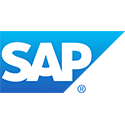
This ERP solution covers a broad spectrum of business needs and now includes solution offerings for the midmarket.
If you’re interested in the differences between SAP and Oracle, be sure to read our SAP vs. Oracle blog post.
The 2025 Top 10 ERP Systems Report
What vendors are you considering for your ERP implementation? This list is a helpful starting point.
Oracle Fusion Cloud Supply Chain & Manufacturing

This system provides a comprehensive view of finance and operations with functionality for supply chain, finance, human resources, and customer experience.
If you’re interested in Tier I and Tier II systems, be sure to look at our list of the top 10 erp software in the world.
Infor Industry CloudSuites
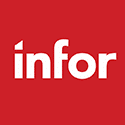
The CloudSuites are packaged to cater to specific industries, such as aerospace & defense, automotive, distribution, fashion, food and beverage, industrial manufacturing, and healthcare.
Upper Tier II
These types of ERP systems typically serve small to midsize companies with $250 million to $750 million in annual revenue. Companies of this size may encompass multiple industries and multiple business units.
Microsoft Dynamics 365 Finance & Supply Chain

This ERP system provides integrated reporting and visualization through Power BI and allows multiple modes of manufacturing, including process, discrete, lean, and project based.
IFS ERP
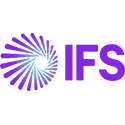
This is an ERP solution designed for large enterprises and midsized organizations in aerospace & defense, construction & engineering, energy, utilities & resources, manufacturing, and service.
Epicor Kinetic

Designed for manufacturers, this system delivers predictive analytics and contextual recommendations through its generative AI capabilities.
Lower Tier II
These types of ERP systems typically serve small to midsize companies with $10 million to $250 million in annual revenue. These companies usually represent only one industry and have a single entity to manage.
NetSuite ERP
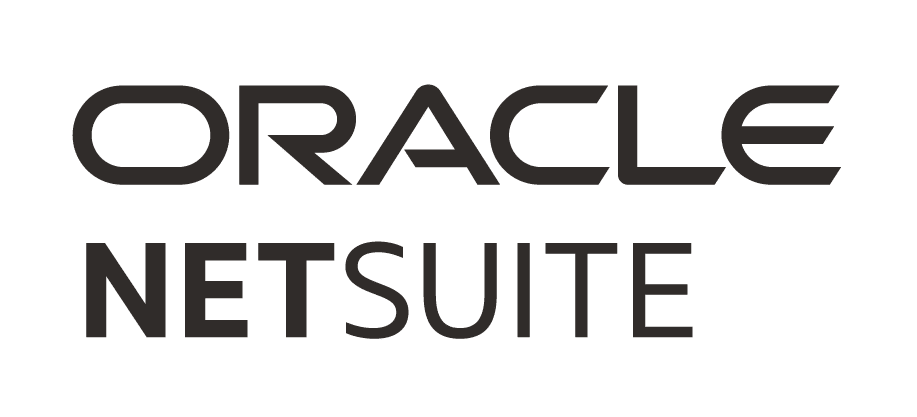
This ERP system includes functionality for financials, inventory management, procurement, HR, professional services automation, commerce, and warehouse & supply chain management.
Microsoft Dynamics 365 Business Central

This solution includes flexible manufacturing capabilities, such as routings, capacity planning, landed cost tracking, cost & profitability analysis, and more.
Deltek Costpoint
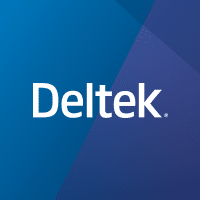
This solution is designed to resolve the operational and regulatory needs of discrete manufacturing firms. It provides functionality that allows tracking of shop floor activities, completions, and statuses.
Tier III
There are hundreds of software providers in this tier serving mostly small businesses. However, there are also some very robust point solutions with niche functionality that are often used to supplement a larger ERP system.
ASC

ASC is a supply chain management system that integrates with ERP software. It provides real-time data at the point of activity.
Tyler Technologies
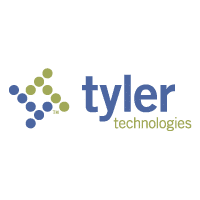
Designed for the public sector, this software system includes built-in reporting and analytics, automated workflows, community-access portals, and integrated cashiering and electronic payment.
The Evolution of ERP Systems
Initially designed to manage inventory and manufacturing processes, ERP systems expanded their reach to core business functions like finance, HR, and supply chain management.
Then, more specialized solutions entered the scene, including supply chain management (SCM) systems and customer relationship management (CRM) systems. Businesses could integrate their ERP system with these specialized systems to enhance its capabilities.
Today, common types of ERP systems incorporate artificial intelligence (AI) and machine learning (ML) to enable predictive analytics, intelligent automation, and enhanced decision-making.
The evolution of ERP systems marks a shift toward viewing technology not just as an automation tool but as a platform for innovation and growth. Modern enterprise software provides businesses with the agility to adapt to market changes, the intelligence to make informed decisions, and the efficiency to drive sustainable growth.
With these goals in mind, you can determine what type of ERP system will enable your organization to move in this direction.
While this list is a great start, it is by no means a complete list of all the different ERP system examples and applications we have implemented. Our ERP consulting team has worked on hundreds of ERP implementations, and we’re ready to dive into your business operations to determine the best solutions and deployment options for their needs. Contact us below for a free ERP consultation.





![Navigating the Many Types of ERP Systems [The Categories You Need to Know]](https://www.panorama-consulting.com/wp-content/uploads/2020/02/types-of-erp-systems.png)








